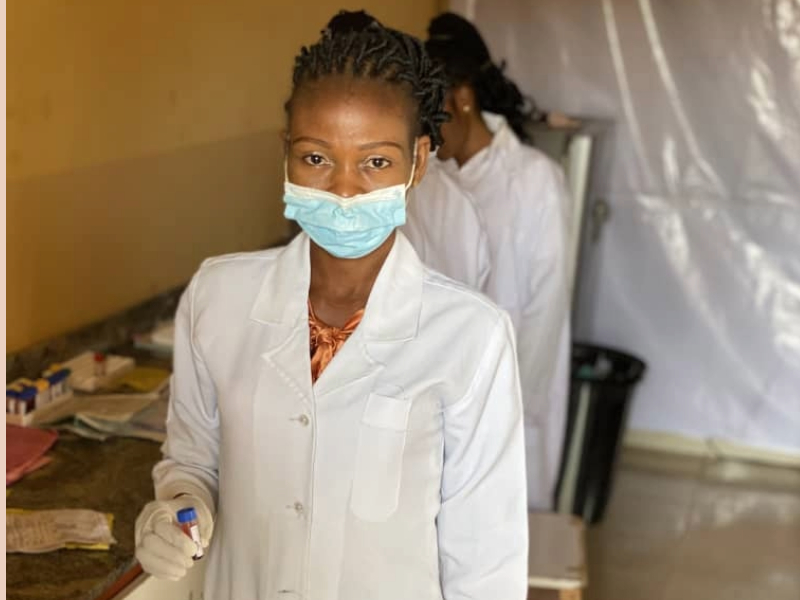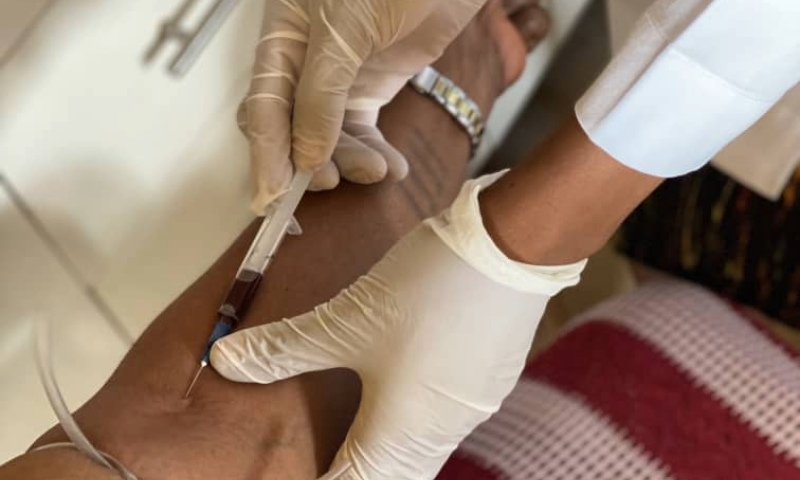Adebola Adetunji is a healthcare professional who assists patients through diagnoses and investigations of their diseases, including screening. Along with her team, she creates awareness of various health issues. Adebola has a passion for improving the healthcare system and providing better health conditions for patients. She is the founder of the “My Peppy Health” club, which educates people on how to maintain good health through regular medical check-ups. Adebola started practicing medicine full-time a few years ago, and she finds joy in seeing her patients’ faces light up with sound health or good news about their health. When she’s not working, Adebola loves to read, write, create designs, and watch movies. She is a motivator and health activist and values her time.
Cholesterol occurs naturally in the body. It plays vital roles such as producing bile acids to digest fatty foods, metabolising vitamin D in the skin, making hormones and building cellular membranes. Many people know it as cholesterol test. It can also be called a lipid profile test. This test gives the best results when samples are taken before ingesting any food or water in the morning. A fasting duration of 8 to 12 hours is necessary after having dinner, in preparation for the next day. When this test is done with fasting, it is called fasting lipid profile test. It measures the amount of cholesterol and other fats in the blood. A complete cholesterol test consist of:
Total cholesterol level (TC): which signifies the total cholesterol in a person’s blood.
Triglycerides (TG): these kind of fat in the blood are responsible for providing energy to the body. If the body does not use this fat, it stores or saves it. When TG exceeds normal level, it may be a sure-fire sign for heart disease or other complicated health issues. When TG is below normal level in the blood, it may result into lethargy, loss in weight, dry skin, brittle hair, muscle wasting and diarrhoea. In some instances, diseases such as hyperthyroidism, a condition whereby the thyroid gland is overactive thereby making too much thyroid hormone. Malnutrition, a condition of lack of proper nutrition or malabsorption syndrome, which is difficulty in absorbing nutrients from food or it can be termed difficulty in digesting food. All these may result into one having low level of TG in the bloodstream.
Low density lipoprotein cholesterol (LDL): this kind of fat is generally termed the bad or “demonic” cholesterol because it derives joy in building up in the arteries, raising the risk of heart attack and stroke.
High density lipoprotein cholesterol (HDL): this kind of cholesterol is termed the good or “angelic” cholesterol because it clears away the deposits of LDL in the arteries. A series of factors can make it low beyond its normal range such as genetic factors, high TG in the blood, sedentary lifestyle, hypertension and smoking. This cholesterol can also be high beyond normal level due to treatment with fibrates, statins, niacin, oral oestrogen replacement therapy and excessive alcohol intake.

People who need this test mostly are:
People whose tests had once revealed high values of cholesterol, type 2 diabetes individuals, those engaging in sedentary lifestyles, obese people, smokers, adults from 20 years of age, to do the test in every 2 to 3 years, after 40 years, the doctor calculates the risk and suggests frequent duration. Children of 9 to 11 years should do this test once and repeat it at 17 to 20 years because at puberty, hormones can alter test results.
Information received from the cholesterol test can help doctors determine or detect if there is plaque formation in the arteries, if such patient can develop heart disease or stroke. Also, the test result is what will make the doctors to be able to prescribe suitable medication, recommend lifestyle and schedule another test date. Someone with high level of cholesterol may produce no symptoms, besides, it does not exclude a slender person. Not all fat people have high cholesterol values. Now, too much or high cholesterol in the body accumulates to form plaque in the arteries. The plaque formed narrows the arteries, thereby reducing the flow of blood and oxygen to the heart. This can result in a heart attack.
What you will encounter at the Medical Laboratory:
Just like any other test involving blood collection, it is also a fairly simple procedure which involves drawing blood from a vein with needle and syringe or vacutainer. The technician finds the location of a suitable vein in the arm, cleans the area with antiseptic, wraps the arm with a tourniquet to help the vein fill with blood. The vein is pierced with a sterile needle, the vial is filled with blood through the vacutainer, the tourniquet removed and a dry cotton swab would be placed on the insertion site to stop bleeding, then covered with bandage. There is no big deal after collecting the blood sample, the patient can resume his/her daily activities.

The results of the test will enable the doctor know the next step of action to take as said in the previous passage. The Centres for Disease Control and Prevention (CDC) recommends aiming for the following levels of cholesterols and triglyceride:
Total cholesterol: below 200mg/dl
LDL cholesterol: below 100mg/dl
HDL cholesterol: at or above 60mg/dl
Triglycerides: below 150mg/dl
Now, it is obvious to us that high cholesterol levels may lead to risk of cardiovascular issues and stroke. Regular medical check-up is essential in order to curb it or guide against falling a victim. If the results are on the high side, do not keep quiet, do not hesitate to speak with your doctor immediately. Regular and not over strenous exercise is not a sin, quality sleep of 6 to 8 hours is advisable. Stress is another silent killer that needs to be managed. Alcohol intake reduction, having a moderate weight, eating healthy meals and drinking sufficient water is ideal. Failing to care for oneself is also disloyalty. Remember, the secret to longevity and good health is found in your daily routine of diet, lifestyle and hobbies.
Reference: National Heart, Lung and Blood Institute (NHLBI), March 2022.
Centres for Disease Control and Prevention, March 2023.

